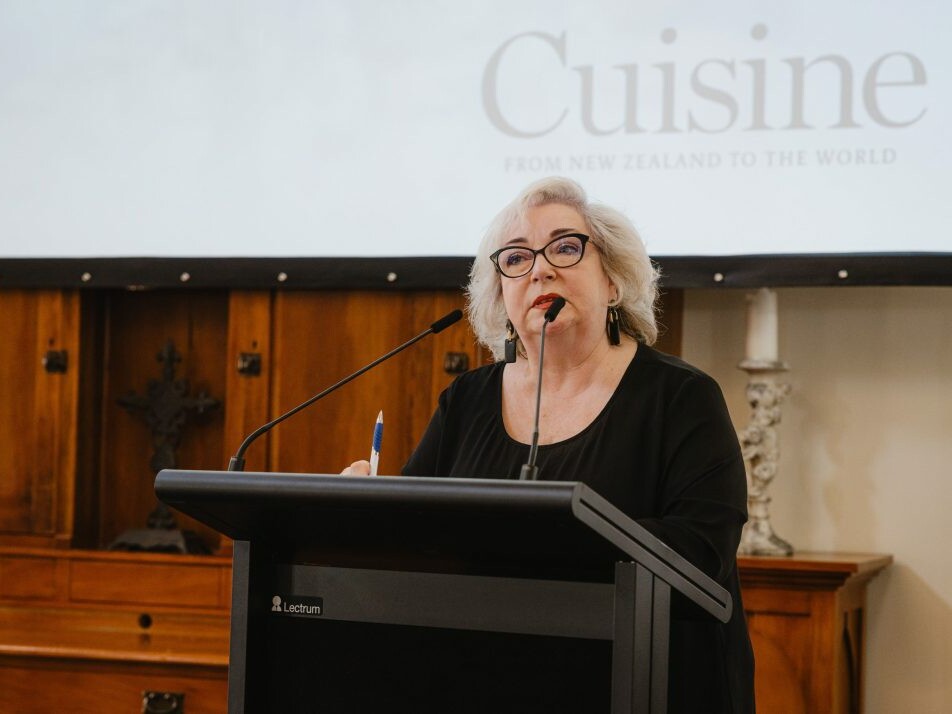Kelli Brett questions the role of the restaurant review.
As we approach New Zealand’s biggest food-and-drink party of the year and the announcement of the Cuisine Good Food Awards presented by American Express for 2023/2024, perhaps it’s a good time to look at the changing face of the restaurant review. Once the domain of the professional food critic whose voice of authority demystifies the restaurant experience and provides information so the reader can make an informed choice on where to dine, platforms such as Yelp, Tripadvisor, Google Reviews, Instagram, Facebook and TikTok now allow anyone to play the role of the restaurant reviewer.
Add into the mix an algorithm that promotes extreme opinions to cut through the noise and you start to see that the internet loves a hugely positive or a scorchingly negative review. It loves the ‘WOW’ and the ‘DELICIOUS’ and ‘YUMMY’. And so, it seems, do we. But not every restaurant can be amazing, even though every restaurateur will tell you that it is. Why would you devote your life to the long hours, financial stress, constant recruitment challenges and lack of social time to be only mediocre? And, in my opinion, why dedicate space to a negative review? At Cuisine we made the decision many years ago that that type of content is not for us. We’d much rather recognise those restaurants that we would happily encourage you to frequent and support.
The negative review has long been a top performer for media, much more likely to go viral than a positive story. It’s not a new phenomenon but the bite-size video formats that are now circulating in our feeds often receive millions of views as the ‘influencer’ passes a 30-45 second judgement (fact-checked or not) in a rapid-fire monotone that reminds me of the ridiculous disclaimers and conditions that are spewed out at the end of a political advertisement.
And yes, this new generation of self-appointed tastemakers have every right to voice their opinion, but a 30-second rant that can be taken totally out of context is hardly a professional assessment. Have they any knowledge of the technique used in the dish? Do they check if the chef’s cultural heritage is uniquely showcased on the menu? I’ve seen so-called ‘professional’ reviews lately where the reviewer has completely missed the uniqueness that a chef has brought to a menu – through their own food memories and cultural inspirations – instead labeling the food as fusion confusion. Have they accounted for the price of their experience and aligned that with their expectations of the service? Do they consider who it is that the restaurant is targeting as their customer so that they can decide whether the restaurant is delivering on its promise? What about the restaurant’s sustainability credentials? A restaurant has many diverse and complicated layers to be considered and it should not be judged by a reviewer using only their personal taste and preference as a means to measure.
To receive a review in Cuisine, the restaurant experience needs to be good and the assessment may land somewhere between great and consistently outstanding or extraordinary. Only very occasionally can we bring you the best of the best. A ‘steer clear’ or a ‘disappointing, give it a miss’ verdict just won’t make our cut. We will not waste your time or ours by telling you where not to go. We book anonymously and pay for every meal and, of course, we do often assess restaurants that won’t receive our endorsement. When that happens we swallow our disappointment, ask for the bill and move on. We are here to lift up and celebrate our hospitality industry, not tear it down.
What about the content-makers who flock to the latest restaurant opening in the race to be the first to post their verdict? We would never review a restaurant until it has had a chance to establish and demonstrate consistency. That is not fair on the restaurant team.
There are plenty of influencers who are willing to post images of a dish in return for a free meal, but these posts are – for the most part – not to be mistaken for an unbiased review. And, of course, chefs and restaurateurs now have their own social platforms on which to promote their offering and develop a loyal following of their own. There is room for all of these voices and for all types of influencers, but I believe that people are still looking for an independent and credible voice, especially when searching for options within the higher-end restaurant experience. The job of the restaurant review is to put into words – and portray through images – the dining experience, so that you can decide whether you want to spend your dollars at that establishment. Our role as the reviewer is to give you all of that and so much more.
There are way too many below-average restaurants in New Zealand. It’s time for you to support the restaurants that truly deserve your support. That’s where we come in. Stay up to date with our guide to the very best dining experiences at cuisine.co.nz.




